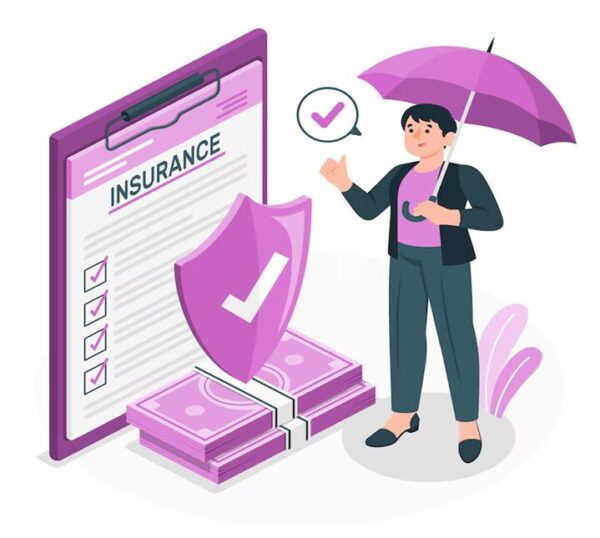
Are you considering a career that offers flexibility, independence, and the potential to build your income on your own terms? Both freelancing and becoming a commission-based insurance agent provide these opportunities.
This guide will compare these two career paths based on control, income potential, and ease of getting started, helping you decide which option best aligns with your lifestyle and professional aspirations.
Is Freelancing the Right Choice?
Freelancing involves offering your specialised skills, such as writing, graphic design, coding, or marketing, on a project-by-project basis. As a freelancer, you’re your own boss; you select your clients, determine your rates, and manage your entire schedule.
Advantages of a Freelance Career
Here are some key benefits you can expect when choosing freelancing:
1. Complete Schedule Control
You have the freedom to set your own working hours and decide how many projects to take on, allowing you to integrate work seamlessly with your personal life.
2. Client Selection Power
You get to choose the clients and projects that genuinely interest you and align with your expertise, leading to more fulfilling work.
3. Geographic Independence
Work from anywhere – your home, a co-working space, or even while traveling. Your office is wherever you choose it to be.
4. High Income Scalability
As your reputation grows and skills evolve, you can expand your service offerings, attract higher-paying clients, and significantly boost your earning potential.
5. Access to a Global Market
Freelancing opens doors to a worldwide client base, offering diverse opportunities and the potential to earn in different currencies.
What are the Challenges of Freelancing?
While rewarding, freelancing also comes with its own set of difficulties:
1. Variable Income
Income can fluctuate significantly from month to month, depending on project availability and client payments, requiring careful financial planning.
2. Self-Managed Administration
You are solely responsible for handling all administrative tasks, including tax filings, invoicing, and continuous self-promotion.
3. Intense Market Competition
The freelance market can be highly competitive, demanding consistent skill enhancement and proactive marketing to stand out and secure projects.
What Freelancers Can Earn
Freelancers can earn more as they develop their skills, gain experience, and expand their network. Rates increase over time, especially if you specialise.
While freelancing offers significant freedom and earning potential, it’s not the only route to a flexible, income-driven career. Let’s shift our focus to another promising option.
Becoming a Commission-Based Insurance Agent
A commission-based insurance agent sells insurance policies and earns a commission on each sale. This model particularly supports new entrants, often providing digital tools and comprehensive training to help you succeed.
The Benefits of Being an Insurance Agent
Here’s why to become a life insurance agent is a smart and rewarding career choice:
1. Steady Recurring Income
You earn commissions on initial policy sales and renewals, building a more consistent and reliable income stream over the long term.
2. Flexible Work Arrangement
You can set your working hours and pace like freelancing, allowing for a good work-life balance.
3. Minimal Startup Costs
You can begin your career without needing significant upfront capital, making it an accessible option even with limited savings.
4. Structured Training and Support
Most insurance companies offer ongoing training, resources, and mentorship to help agents develop their skills and achieve success.
5. Opportunities for Networking
Build valuable relationships with clients and partners while providing essential protection and financial benefits.
Challenges of Being an Insurance Agent
Be aware of these potential challenges in the insurance sales profession:
1. Continuous Client Engagement
Success hinges on regularly contacting potential clients, actively seeking new business opportunities, and nurturing existing relationships to drive growth.
2. Importance of Relationship Building
Maintaining a strong client base requires consistent follow-ups and building trust over time to encourage policy renewals and referrals.
3. Time to Establish Client Base
Building a stable network and achieving consistent income can take patience and persistent effort over several months or even years.
The Earning Potential of Insurance Agents
Income for insurance agents is directly tied to policy sales and renewals. Many agents experience significant income growth with consistent performance and high client retention, making it a compelling and stable option among ways to earn money online.
For instance, insurers like Digit Insurance empower their partners to achieve substantial earnings; over 80,000 of their partners have collectively earned more than ₹5900 crores, showcasing immense income potential.
Which Career Fits Your Lifestyle Better?
Both freelancing and commission-based insurance selling offer flexibility, but they cater to different personalities and work styles. Here’s how they compare:
| Aspect | Freelancer | Insurance Agent |
| Schedule | Fully customisable | Flexible |
| Work Type | Creative/Service-based | Sales and client-driven |
| Market | Global (primarily digital) | Local & digital outreach |
| Revenue Style | Per-project or hourly | Performance-based + renewals |
Let’s dive deeper into what each path demands:
● Work Style
Freelancing might be your calling if you’re independent and thrive on creative or technical tasks. Becoming an insurance agent could be a better fit if you enjoy engaging with people, building relationships, and working towards clear goals.
● Control and Flexibility
Freelancers have complete autonomy over their schedule, projects, and work environment. Insurance agents also benefit from flexible hours, but often operate within a supportive system that provides training and clear objectives.
● Earnings and Growth
Freelancers earn per project or hourly, so their income can fluctuate. Insurance agents earn through commissions and policy renewals, which can lead to long-term stability and significant income potential as your client base expands.
Ultimately, the best career path hinges on your preferences, strengths, and long-term goals. Both offer the freedom to shape your professional life, so consider which aligns best with your personal and financial aspirations.